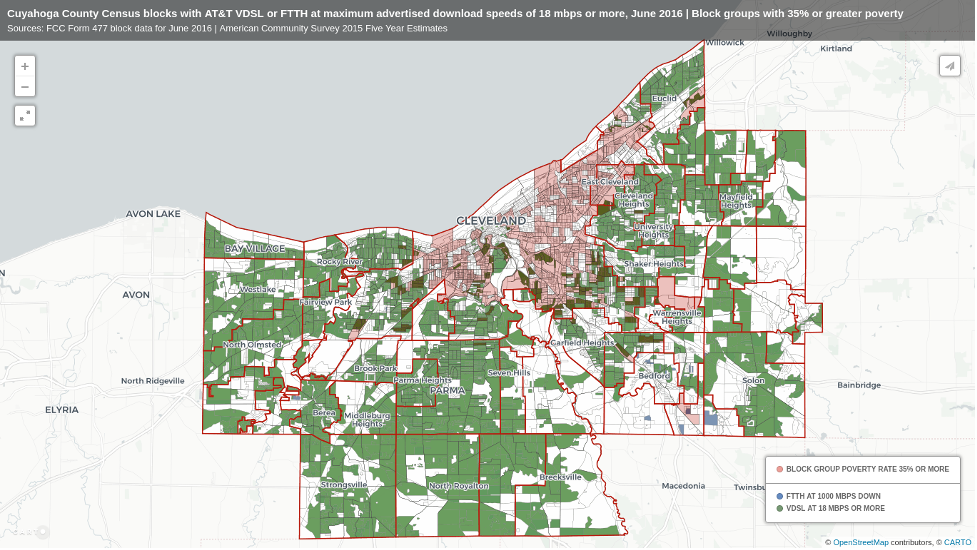
Source: NDIA Map of AT&T fiber network in Cleveland
Last week, Voqal joined a group of nearly 40 organizations demanding the Biden Administration transition team abolish digital redlining. The problem of digital redlining – service providers choosing not to invest in new technology in particular neighborhoods of a city – has been persistent for years, and primarily impacts people of color in major urban locations.
Digital inclusion groups like the National Digital Inclusion Alliance (NDIA) have been reporting on this issue for years. A report from 2016 clearly demonstrates how major telecommunications providers (like AT&T) avoid upgrading technology in urban parts of the city that are home to a greater proportion of low-income and minority families.
The letter submitted by the coalition does not mince words about its intent:
“We demand that the new Biden FCC commit to abolishing digital redlining in its first year and use its power to end digital redlining of fiber infrastructure in its entirety across America before the end of the first term.”
In order to prevent the practice of digital redlining, the letter calls on the FCC to reclassify broadband services as a Title II common carrier service and update its net neutrality and privacy rules. Doing so would allow the FCC greater latitude to regulate broadband providers. Voqal looks forward to working with the incoming Biden FCC to address this issue and make certain all Americans have access to affordable, high-quality broadband service.
At Voqal, we believe a key component of increasing social equity is addressing the long-standing history of racial inequity and discrimination in this country. As we strive to become a more anti-racist organization, we will continue to support policy changes like the elimination of digital redlining, that seek to address the systemic racism that continues to negatively affect communities of color in the United States.